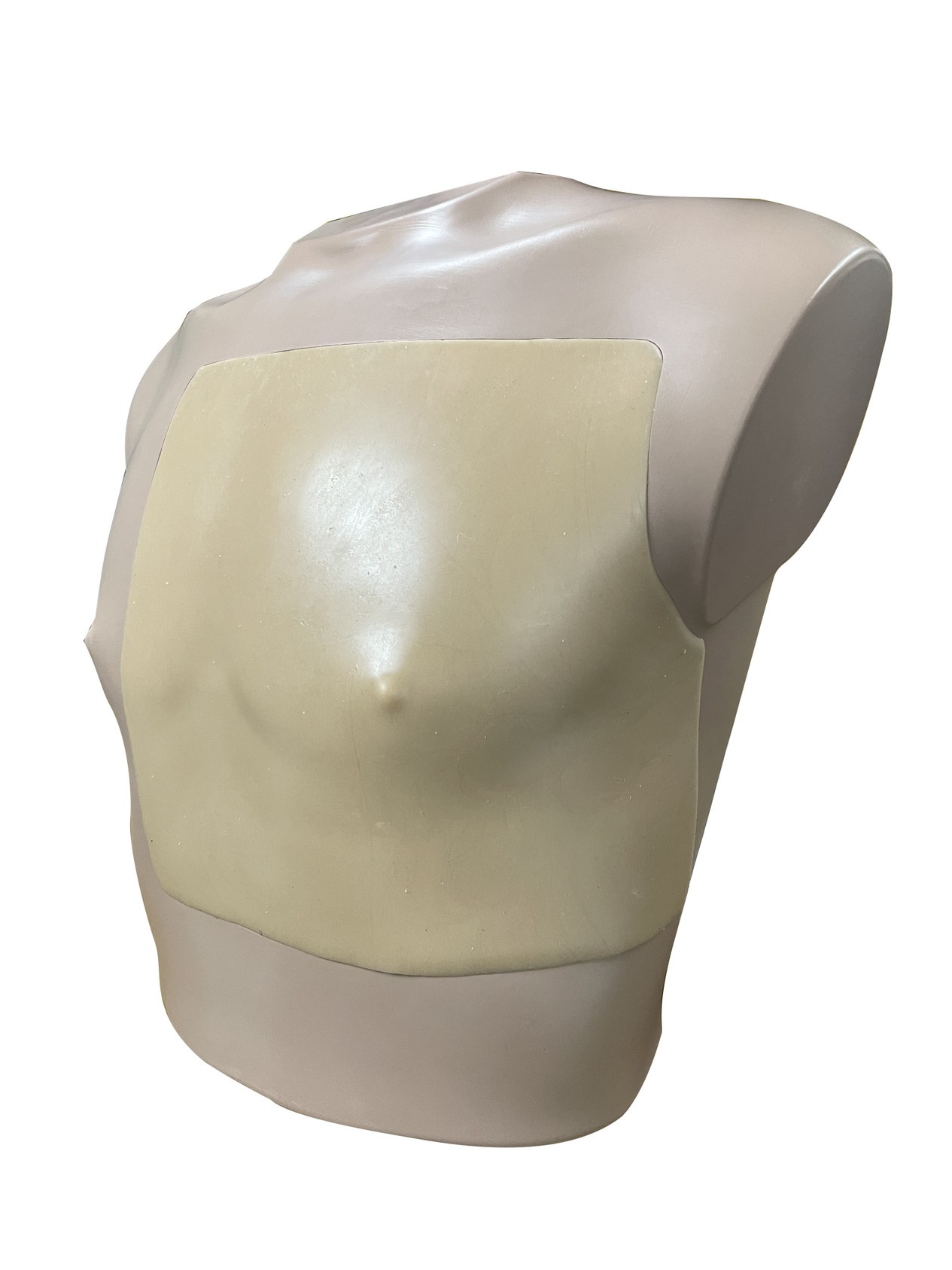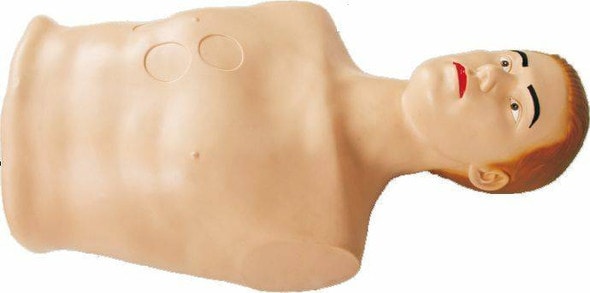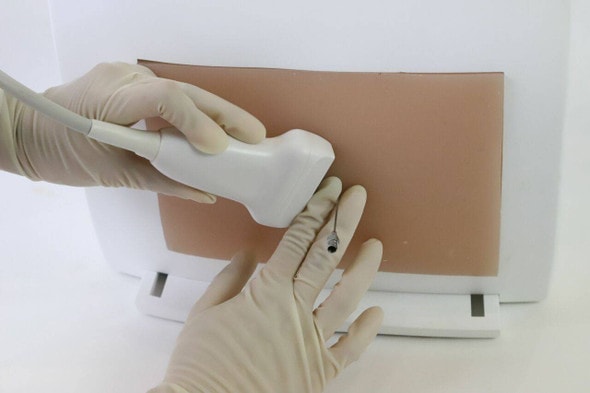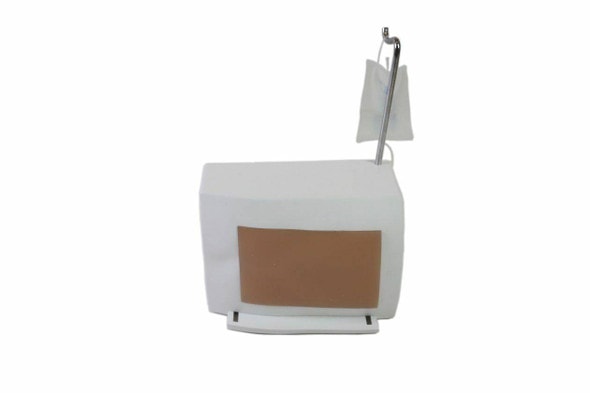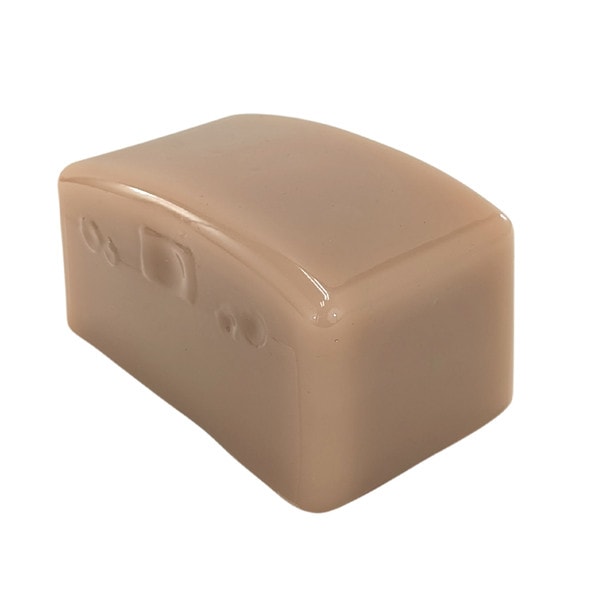Description
Ultrasound Pericardial Puncture Model
This model simulates a male upper body from the neck to the lower margin of the costal arch and is designed to develop the skills for pericardial puncture.
Skills Gained
- Anatomical familiarity
- Ultrasound probe handling
- Pericardial puncture
Features
- Anatomy: obvious anatomical landmarks, including papilla, xiphoid process, sternal angle, clavicle, ribs and intercostal spaces, etc.
- Realism:
- Built-in high-fidelity human tissue structures in the ultrasound module, including the heart (left ventricle, right ventricle, left atrium, right atrium, mitral valve, tricuspid valve, aortic valve, pulmonary valve), part of the liver and the pericardium
- Realistic puncture experience
Key Features:
- Compliant with all ultrasound machines for standard and clear ultrasound cut-plane image.
- Parasternal long & short axis view, apical 4-chamber view, subxiphoid 4-chamber view available.
- Visceral layer of serous pericardium, parietal layer of serous pericardium, left atrium, left ventricle, right atrium, right ventricle and the fluid dark area of pericardial effusion can be seen under ultrasound.
- Pericardial effusion puncture can be performed under the guidance of ultrasound through subxiphoid, apical and parasternal approaches.
- Light yellow, grass green or dark red simulated effusion can be extracted with successful puncture, and bright red simulated blood can be drawn if the needle mistakenly inserted into the heart.
- Liquid refill interface for adjusting effusion amount.
- Durable skin pad supports disinfection and no less than 100 punctures with no leakage; easy replacement.
Specifications
- Weight: 27.8 lbs
- Dimensions: 26" L x 17.3" W x 14.5" H
Components
- Ultrasound Model
- Syringe
- Connecting Tube
- Operation Manual

